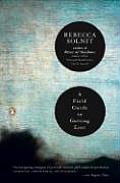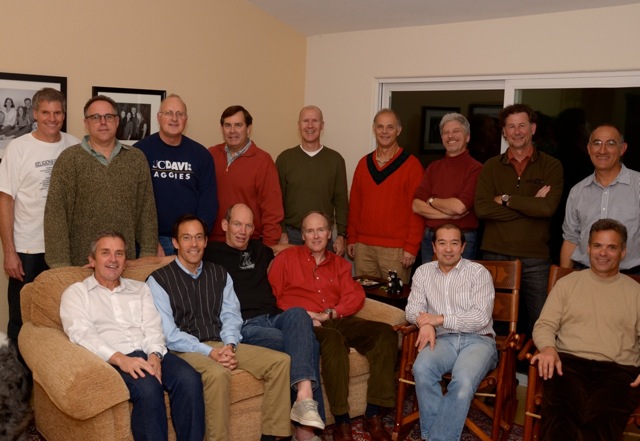Dinner and Acknowledgments
Last Wednesday was only our second dinner together since 2020 and, like our meal in May at Tom's, it was worth the wait. Mando served up a series of classically French dishes whose ingredients had the imprimatur of none other than Claude Monet and our very own Le Comptoir. From the opening cheese selection to the roast chicken, from the potato casserole to the apple pie, c'etait tout magnifique!
Our Discussion and Review of Solnit’s A Field Guide to Getting Lost
Rebecca Solnit’s A Field Guide to Getting Lost is a collection of essays on a seemingly endless variety of topics—from the plot of Vertigo to the travails of Spanish explorer Cabeza de Vaca to a heroin overdose by a close friend—all connected (sometimes flimsily) by the notion that true self-discovery occurs only after one has lost one’s way.
When we picked A Field Guide from Mando’s list of titles last month, we naively thought that we were finally going to understand why it’s better to put away the map. We didn’t expect that Solnit’s path was going to be more metaphysical than literal. Yes, there were the obligatory references to Thoreau's road less traveled and to early explorers relying on maps with too little topography and too much terra incognita. But Solnit’s emphasis on geography was simply to get us in the mood for more serious soul-searching. And that’s where our problems began.
Most of us felt Solnit’s essays were, ahem, all over the map (thanks for the pun, Dan). Her ideas and associations move quickly and at times randomly. Some guys couldn’t follow the thread and others simply lost interest. Worse, her commentary is surprisingly uneven for such an accomplished writer, with trenchant observations and clever asides followed by more than a few clunkers. To paraphrase Paul, Solnit's ideas were fascinating and frustrating, erudite and interesting, but with no obvious lesson to be drawn from the collection. (I'm tempted to also paraphrase Dean, who characterized Solnit's stories as David Sedaris writ noir, but my notes don't do his wit justice!)
Rating A Field Guide to Getting Lost
With her intentionally discursive style, Solnit doesn’t make the reader’s task easy. And so we complained, predictably. But she earned our grudging admiration nonetheless. She provoked us with her impressive range, she made us consider our place and our potential, and (for most of us) she had us thinking long after we’d finished the book. So, despite our various disappointments, we gave her effort a respectable 6.1.
Next Up: Deacon King Kong by James McBride





